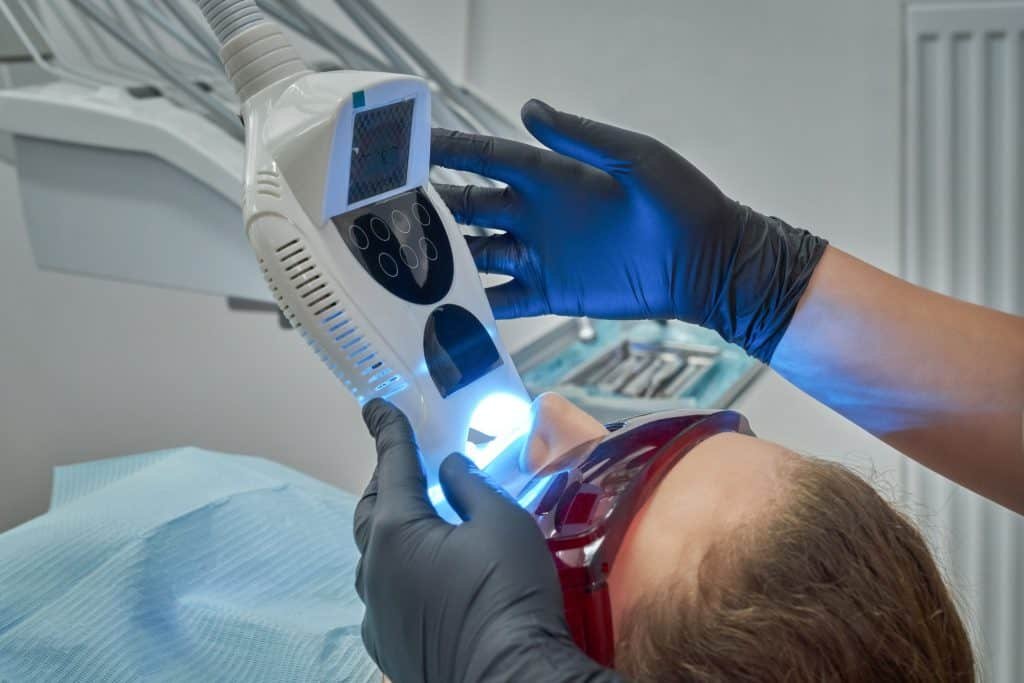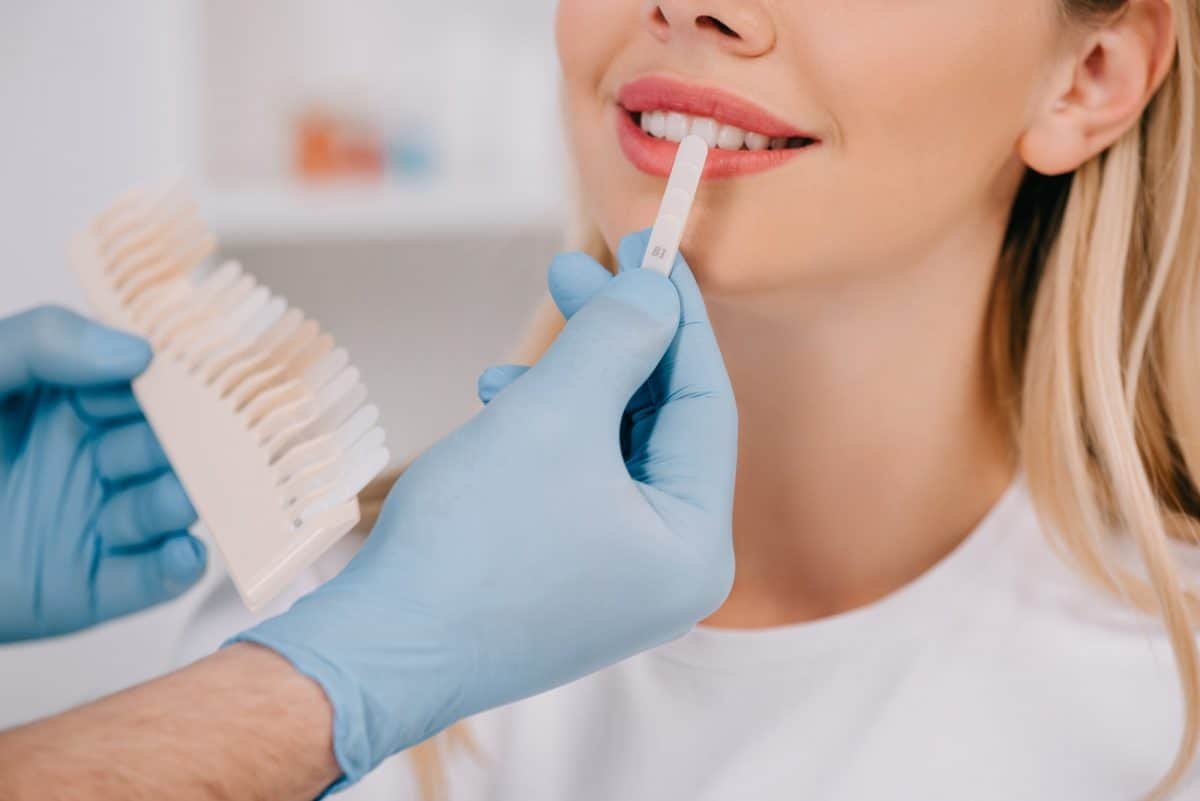Here’s everything you need to know about teeth whitening at the dentist and why it might be worth your while.
- Teeth whitening can help improve your smile by making them appear whiter, brighter, and healthier.
- Having whiter teeth can make a huge difference in your day-to-day confidence.
- It’s safe because it is done by someone who knows how to handle the chemicals involved with this procedure.
1. What is teeth whitening, and why do I need it?
Teeth whitening refers to a cosmetic dentistry treatment that aims to brighten the teeth and make them look whiter.
There are many reasons this procedure could be beneficial for you, but one of the main ones is improving your smile by making your teeth appear brighter, whiter, healthier-looking, and more attractive.
Another reason would be because noticeable gaps between teeth or stains on tooth surfaces might embarrass you in front of others. You may also get some psychological benefits from doing so since having visibly white teeth will increase self-confidence when meeting with friends and family.
Another thing to keep in mind is how important it is for our mouths to have good oral hygiene habits as part of an overall healthy lifestyle.
Tooth whitening is like resetting your oral health to a “default” setting, and it doesn’t take much time or effort.
For many people, this treatment may seem expensive at first glance, but once you consider the fact that you’ll get long-lasting results with just one procedure – that’s really quite affordable.
2. How does the tooth whitening process work?

This process works by using a special dental gel that is applied to each tooth, and then the dentist will use ultraviolet light to activate it. An in-office teeth whitening session should only take about 20 minutes, and it’s possible to complete the process on a single tooth surface each visit (although more than one may be necessary).
The dentist can also offer you bleaching trays or mouth guards as options for how you could whiten your teeth in-between visits every few months if desired.
3. Cost of treatment for teeth whitening
The cost of treatment varies based on many factors. But on average it costs around Rs. 4000 – 8000. The cost range varies depending on the dentist, the severity of teeth discolouration or staining, and how many visits you will need to complete the procedure.
4. Are there any side effects of tooth whitening?
There are usually no side effects of teeth whitening; however, if you have sensitive teeth or gums, there is a chance that the dentist could recommend discontinuing treatment until they heal.
It also depends on how quickly you want to complete the procedure. If the dentist uses a fast-acting gel, there may be some sensitivity during and after treatment; however, if they are not applying this type of gel, then gums or teeth could swell a bit for up to two days following treatment as these areas heal and get back to normal.
But this can be avoided if you consult with your dentist and they will suggest the best course of action based on your current oral hygiene.
5. Benefits of teeth whitening at a dentist office
You might want to visit a dentist if you have teeth stained by dark-colored beverages, smoking, or medications.
The benefits of teeth whitening at the dentist’s office are that it can be done quickly and with little fuss: most people don’t need any anesthesia. They typically only require one treatment for noticeable results. It’s also important to note that while in some cases stains may return over time, this procedure will remove them much quicker than regular brushing alone would.
Another benefit is that your dentist may use a clinically approved product made specifically for dental usage, which means it doesn’t contain hydrogen peroxide (a common ingredient found in home kits). This makes it safer and more effective on sensitive teeth as well as gums.
Tooth whitening procedures are designed to be tailored to the individual, so it’s important for you to be honest about your teeth-cleaning habits with your dentist.
6. How to maintain your new smile after tooth whitening treatment is finished
After tooth whitening treatment is finished, make sure you continue to brush and floss your teeth with care. Brush for two minutes twice a day at the minimum by brushing the gum line around your teeth as well. Floss if you can once or twice a week.
Your dentist will also give you a home-care guide that includes instructions about sensitivity management if it’s an issue following treatment that can be easily resolved using over-the-counter products while waiting for recent treatments to take effect.
7. Should you get your teeth whitened at the dentist instead of over-the-counter treatments?
This is a question often asked by our patients. The answer has many reasons, one of them being that you can’t get as close to the gum line with over-the-counter products and teeth whitening systems in stores. Other advantages are more comfortable procedures, less sensitivity after treatment, and better results because your dentist knows what’s best for your unique needs.
Your dentist will also be able to see if there are any issues such as tooth decay or cavities that need to be addressed before starting the work on your teeth which helps avoid extra treatments later on when it could be avoided now. This makes going through the process at the dentist worth every cent spent!
Many people wonder whether they should have their teeth bleached professionally, but it depends on how often you want to do it. A dental professional will tell you which teeth whitening option is best for your needs and budget.
In conclusion, we can say that teeth whitening can be a great investment in your confidence as well as oral care. It should be done at the dentist as it will save you both time and money in the long run.

